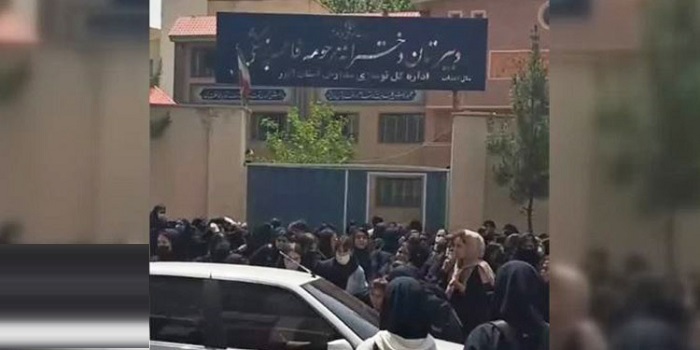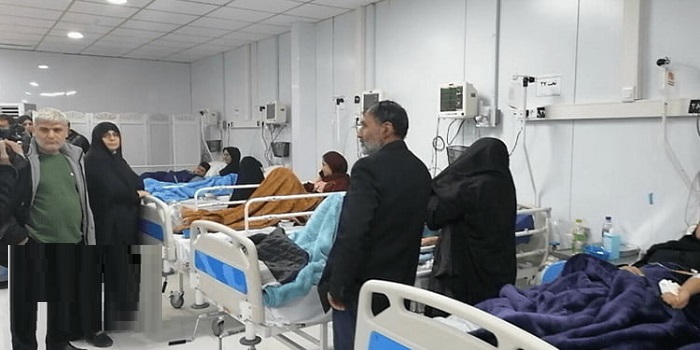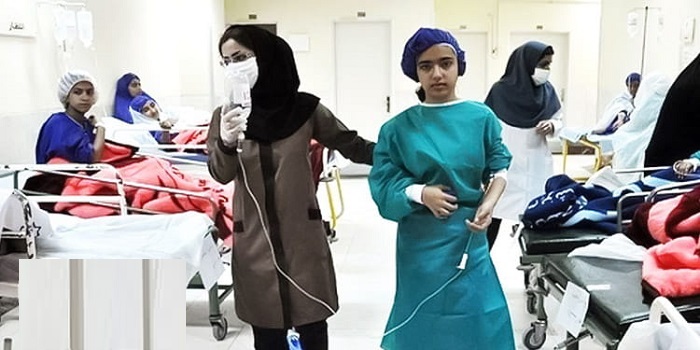
Over the past week, multiple all-girls schools were targeted, with some students reporting a drone dropping a smoking candle in their schoolyard.
On Wednesday, May 3, Parvin Etesami girls’ school in Hassanabad, Sanandaj was attacked. The previous day, the Ali Mohammadi all-girls school in Baneh, Elahieh all-girls school, Kimia Conservatory for girls, and another girls’ school on Komeil St. in Kermanshah, among others, were targeted.

In Harsin, the authorities closed the doors to Fatemeh School, preventing parents from entering. After the poisoning of schoolgirls at Meraj School in Saqqez, regime forces attacked the school, resulting in head injuries for one student.
These attacks follow a series of similar incidents on April 29 and 30, when Esparvarin High School in Karaj, Sama High School for Girls, Kar-o Danesh Abrar Conservatory for Girls in Tehran, and Mehdizadeh Conservatory for Girls in Mashhad were all targeted.

Parliamentary deputy Alizadeh called for dealing with those who spread rumors, while Mullah Pour-Radi, the general director of the Department of Education of East Azerbaijan, suggested a psychological aspect was at play.
The statement also identified and blamed enemy networks for spreading rumors and creating panic. It further vowed to arrest and punish those responsible for spreading rumors, preserving the right to prosecute individuals, groups, and media associated with the enemies of the Iranian nation.

As the serial poisoning of school girls in Iran continues, the regime’s denial and shifting of blame leave parents, students, and the international community searching for answers and demanding accountability.
 MEK Iran (follow us on Twitter and Facebook), Maryam Rajavi’s on her site, Twitter & Facebook, NCRI (Twitter & Facebook), and People’s Mojahedin Organization of Iran – MEK IRAN – YouTu
MEK Iran (follow us on Twitter and Facebook), Maryam Rajavi’s on her site, Twitter & Facebook, NCRI (Twitter & Facebook), and People’s Mojahedin Organization of Iran – MEK IRAN – YouTu







